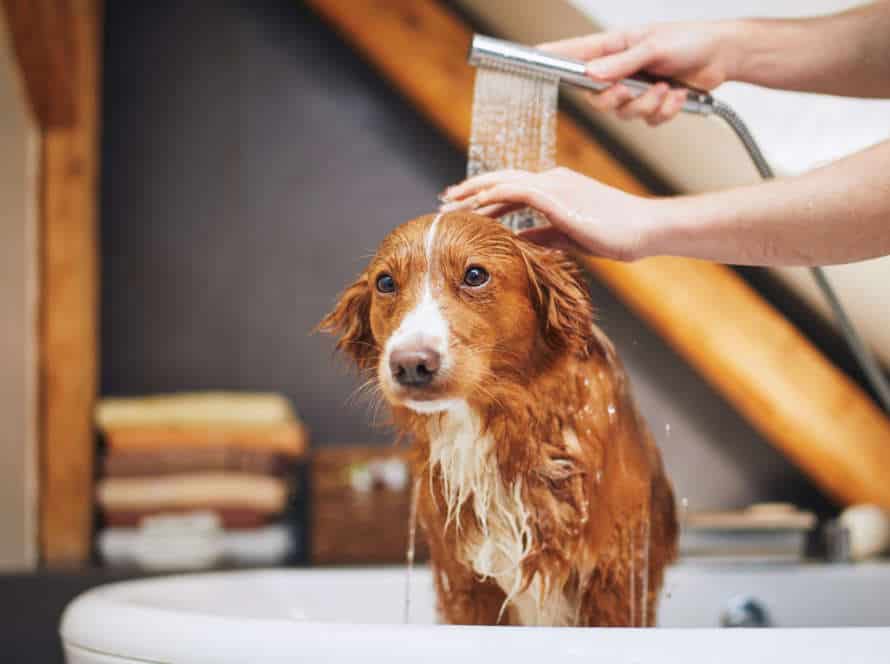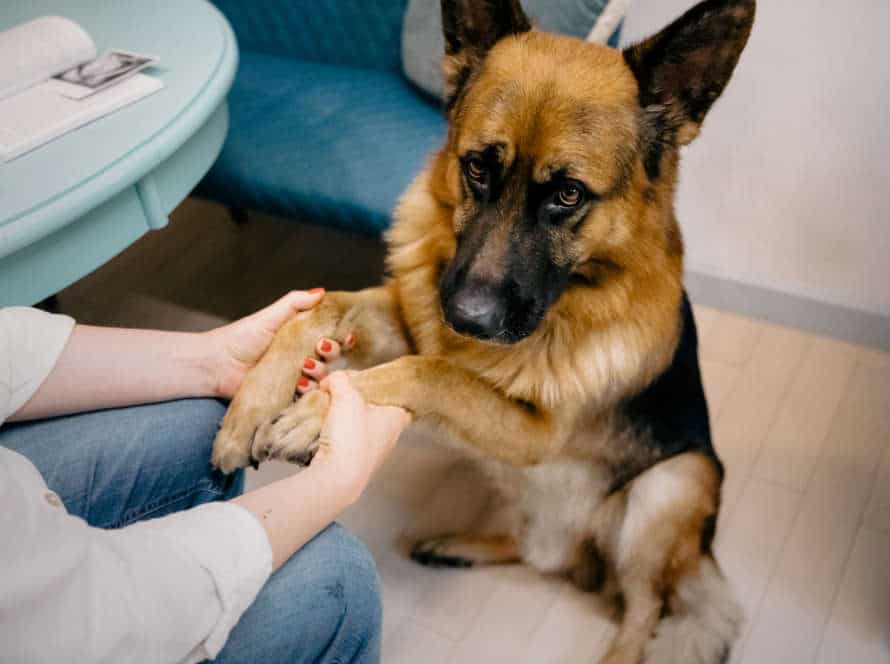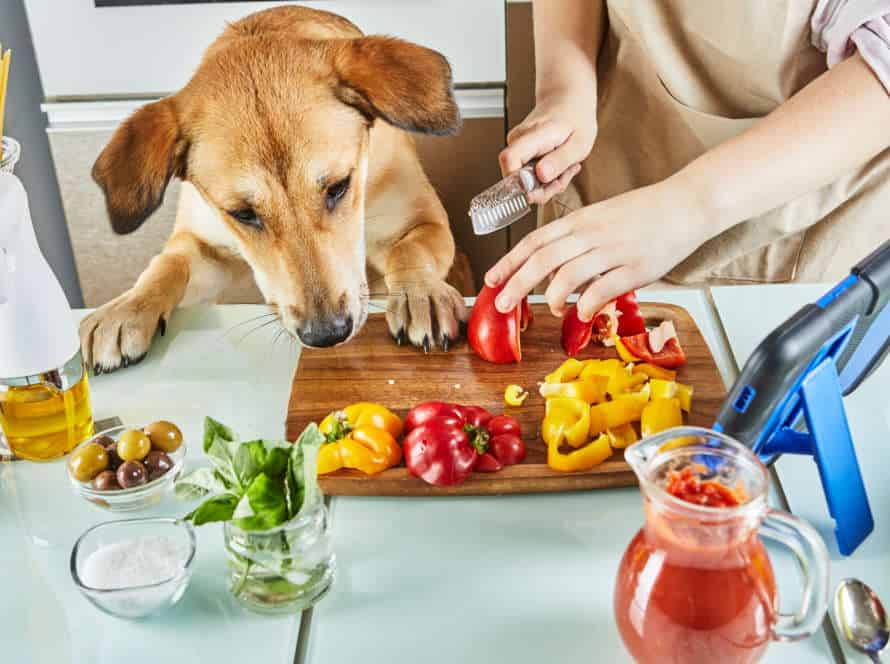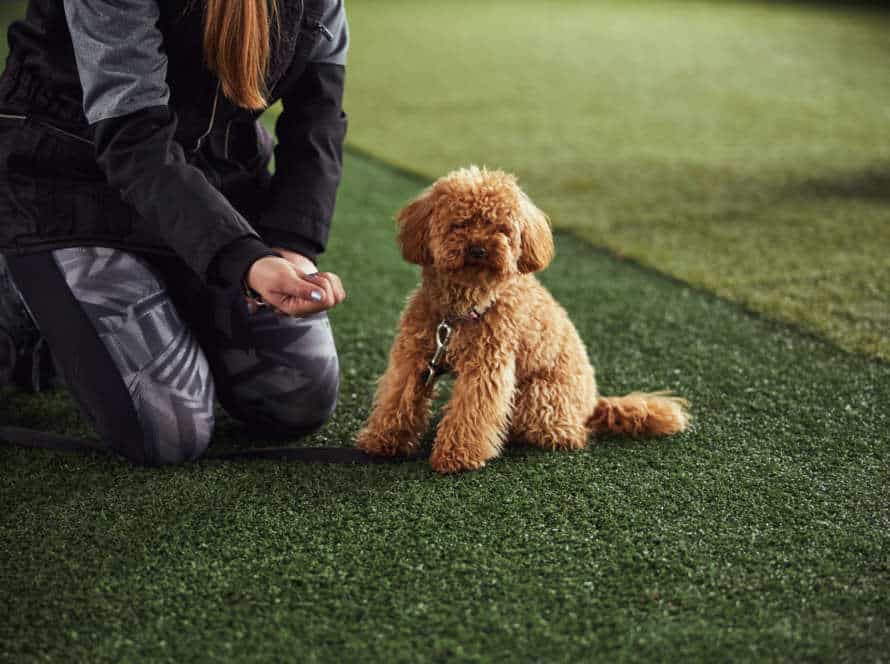Senior Dog Nutrition: Tips for a Healthy, Happy Pet
As your pup ages, their nourishment needs change. It’s vital to make sure they get the correct nutrients for a happy, healthy life.
Here are tips for senior dog nutrition:
- Lower calorie intake – Senior dogs are less active and their metabolism slows, so they need fewer calories to stay healthy.
- More fiber – An aging pup’s digestive system slows, and fiber helps with issues like constipation and diarrhea.
- Less protein – Reduced protein consumption is beneficial for senior dog’s kidneys.
- Joint support – Glucosamine and chondroitin can help with joint problems common in senior dogs.
- Regular vet visits – It’s important to take your senior pup to the vet routinely for check-ups and adjustments to diet and lifestyle.
Understanding the Nutritional Needs of Senior Dogs
Senior doggos have special diets. Nutrition is important for all pooches, but especially for senior pupsters. Let’s explore the needs of older doggos and how to make sure they get the nutrition they need. Tips are included!
The Importance of a Balanced Diet for Senior Dogs
As dogs get older, their nutrition needs change. It’s important to give them a balanced diet that fits their needs.
High-quality dog food, with specific nutrients for senior dogs, is key.
Add lean protein sources like cooked chicken, beef, or fish to meals.
Include healthy fats like fish oil, flaxseed oil, or olive oil.
Offer low-calorie treats or snacks.
Don’t feed senior dogs table scraps, as it can throw off balance.
Monitor their weight to make sure they stay healthy.
A balanced diet helps senior dogs stay healthy and live longer.
Pro Tip: Consult your vet before changing their diet, for the best nutrition.
Factors That Impact Senior Dog Nutrition
As pups age, their nutritional requirements shift. To make sure senior dogs stay healthy, it's vital to comprehend the factors that shape their dietary needs. Here are some of them:
- Age: Metabolism slows in elderly dogs, meaning they need less calories than before.
- Weight: Older dogs are more prone to gaining weight, so you may need to cut back on the calories in their food or choose food with fewer calories.
- Health conditions: Diabetes, joint issues, or kidney disease? This might need changes to your dog's diet.
- Activity level: Senior dogs are likely less active than when younger, so you may have to reduce their food intake to prevent weight gain.
It's essential to talk to your vet to make sure your senior pup gets the right nutrition for their evolving health needs.
Common Health Issues That Affect Senior Dog Nutrition
As dogs age, they are more vulnerable to certain health issues. These can change their nutritional needs. Here are some examples:
- Dental Problems: Older dogs may have trouble chewing or eating hard food. Soft, canned, and moist food options may be better for them.
- Digestive Issues: Senior dogs can have constipation, diarrhea, or a weakened ability to absorb nutrients. This might require dietary changes or medication.
- Obesity: Inactivity and a slower metabolism can cause an older dog to gain weight. A diet with fewer calories and more fiber can help.
Here are tips to help nourish your senior pup:
- Provide a balanced diet that meets their needs.
- Pick high-quality dog food designed specifically for seniors.
- Talk to your vet about any dietary changes or supplements needed.
Designing a Nutritious Diet for Your Senior Dog
As your pup ages, their nutrition needs shift. Crafting a proper diet for your aging pet is key to their health and joy. Senior dogs require elevated amounts of proteins, vitamins, minerals, and healthy fats. Let’s take a look at the nutritional needs for older animals and how to make a balanced diet plan for your elderly dog.
Protein: The Foundation of a Senior Dog’s Diet
As dogs get older, their nutritional needs change. Protein becomes especially important for their health and wellbeing. Why? Protein helps maintain and build muscle mass. It keeps skin and fur healthy. It supports immunity and energy.
Not all proteins are equal. For best results, choose high-quality animal proteins such as chicken, fish, turkey, and lamb.
Also, find a diet made specifically for senior dogs. It should contain the right balance of protein, fats, and other nutrients.
How to Choose High-Quality Protein Sources
Protein is key for senior dogs. Pick the best with these tips:
- Always check the label – protein should be the first ingredient.
- Go for lean proteins like chicken, turkey, fish and eggs.
- Say no to meat by-products and fillers – they don’t offer any nutrition.
- Choose proteins that are easy to digest.
- Balance the diet – give a variety of proteins for optimal nutrition.
The Right Amount of Protein for Senior Dogs
Senior dogs need a balanced and nutritious diet. At least 25% of their daily calories should come from protein sources. This may vary depending on the dog’s size, breed, activity level, and health status.
Be careful about feeding too much protein. Excess can cause kidney problems. Ask your vet for guidance on the right amount of protein for your senior dog.
Choose high-quality protein sources, like lean meats, fish, or eggs. Avoid low-quality sources, such as by-products and fillers. These don’t add much nutrition.
Essential Supplements for Senior Dogs
As canines age, their nutritional needs shift. Providing them with supplements is important for optimal health. Here are some essential supplements that can better the life of senior dogs:
- Glucosamine – Eases joint pain, inflammation, and stiffness due to arthritis or hip dysplasia.
- Omega-3 Fatty Acids – Enhances skin and coat health, boosts immune system, and may even have anti-cancer effects.
- Probiotics – Maintains digestive system health, strengthens immune system, and reduces the risk of certain diseases.
Before adding any new supplements to your pooch’s diet, make sure to consult with a vet. This ensures the supplement is suitable for your pup’s individual health needs.
The Right Carbohydrates and Fats for Senior Dogs
Senior dogs require different metabolism and nutrition. It is vital to give them the right carbs and fats for a healthy and joyous life.
Carbs provide energy, fiber, and essential nutrients:
- Brown rice – a complex carb that is a great source of energy and helps balance their blood sugar.
- Sweet potatoes – easy to digest, fibrous, and full of vitamins A, C, and B6.
Fats are essential too – they provide energy, insulation, and essential nutrients:
- Fish oil – packed with omega-3 fatty acids that support immunity, joint health, and heart health.
- Flaxseed – a plant source of omega-3 and omega-6 fatty acids that supports skin and coat health.
Speak to your vet when selecting carbs and fats for your senior dog to guarantee balanced and nutritious meals.
How to Choose Healthy Carbohydrates for Your Senior Dog
Choosing healthy carbs for your senior pup is vital. Consider the amount and quality of the carb source to support their health needs.
Here are tips:
- Look for high-quality, whole food sources such as brown rice, barley, sweet potatoes and oats.
- Avoid processed carbs like corn and wheat.
- Choose those with a low glycemic index to keep blood sugar levels stable.
- Adjust intake based on activity level. Overfeeding carbs can lead to weight gain and health issues.
By selecting healthy carbs, you can support your senior pup’s health and wellbeing.
The Role of Fats in Senior Dog Nutrition
Fats are a must for senior dog nutrition. They help absorb vital nutrients and provide energy. As dogs age, they need fewer calories. But the quality of the calories is key. High-quality fats can improve the dog’s overall health. Healthy fats give long-term energy, and fatty acids like omega-3 and omega-6 reduce inflammation. They also improve skin and coat health. For senior dog food, look for lean proteins, complex carbs and healthy fats. Your vet can help you choose the right food, supplements and treats to suit your pet’s needs. Pro Tip: Talk to your vet about how to tweak your dog’s diet as they age.
Avoiding Unhealthy Ingredients in Senior Dog Food
Choosing the right dog food for your senior furry friend can be daunting. Here are 3 unhealthy ingredients to avoid:
- Fillers, like corn, soy and wheat. These offer no nutritional value and can cause digestion issues in senior dogs with sensitive stomachs.
- Artificial preservatives, like BHA, BHT and propylene glycol. These are used to extend shelf life, but can be linked to cancer and other health problems.
- Excessive sodium. This can cause dehydration, high blood pressure and other health issues in senior dogs with heart or kidney problems.
Always read labels carefully and avoid anything that could harm your pet’s health. Consult your vet to determine the best senior dog food for your furry friend’s specific needs.
Feeding Options for Senior Dogs
As dogs age, their nutritional needs change. It’s important to provide a well-balanced and nutrient-rich diet. Here are some feeding options for older pooches:
- High-quality senior dog food. These are tailored to give the right balance of nutrients.
- Raw Food Diet. Uncooked meat, bones, fruits, and vegetables. This diet can help improve digestion and reduce inflammation.
- Homemade meals. Allows you to control quality and quantity. Easier to provide a balanced diet.
- Supplements. Glucosamine and chondroitin can help relieve joint pain and support joint health in senior dogs.
Always consult a vet to decide the best diet for your senior dog’s specific needs.
Creating a Senior Dog Feeding Schedule
Creating a feeding plan for a senior pooch is key for designing a balanced diet that’ll keep them healthy. Here are some tips for creating one:
- Figure out how many meals per day based on their age, activity, and health.
- Pick a high-quality dog food with the right nutrition: protein, fat, fiber, vitamins and minerals.
- Measure their food portions carefully – don’t over or under feed.
- Set a consistent time and place for meals to make them feel safe.
- Track weight and adjust the schedule & portion size if needed. Smaller and more frequent meals usually help digestion and prevent obesity in senior dogs.
Pro tip: Talk to a vet or certified nutritionist to develop a plan that suits their needs.
Choosing Between Dry and Wet Dog Food
When it comes to dog food for senior dogs, you must think about their needs and taste.
Dry food is more affordable and lasts longer. It also cleans teeth and supports healthy gums. However, some seniors have trouble chewing it.
Wet food is easier to chew and digest. It also has more moisture, which keeps them hydrated. But, it’s pricier and not as shelf-stable.
Choose the right food for your senior pup. Talk to your vet to make sure it’s nutritionally balanced and age-appropriate.
Homemade vs Commercial Senior Dog Food
As your pup gets older, it is really important to give them a healthy diet that meets their changing nutrition needs. Senior dog food can be a great option, but picking between homemade and store-bought food can be tricky.
Homemade dog food lets you adjust the meals for your pup’s special dietary needs and likes. But, it takes a lot of effort, time and knowledge to make meals that are healthy and balanced.
On the other hand, pre-made senior dog food is more convenient, and usually made to fit your pup’s nutrition needs. However, it can have additives and preservatives that will harm your pup’s health in the long run. Plus, it may not meet your pup’s individual dietary needs.
So, it is essential to talk to your vet to determine the best food option for your senior pup, considering their health needs, likes and allergies.
Maintaining a Healthy Senior Dog Diet
As pups get older, their dietary needs and likes change. Giving a senior dog the same food they’re used to may lower nutrition and even harm their wellbeing. A good diet for elderly canines should be nutritionally balanced and suited to the specific pup’s needs. We’ll go over all the key tips for keeping a healthy diet for seniors pooches.
Monitoring Your Senior Dog’s Diet and Health
As your pup ages, keep an eye on their diet and health to guarantee they have a great life! Here are some tips to keep your senior dog’s diet healthy:
- Choose top-notch, easy to digest grub that fits their dietary needs.
- Offer smaller, more frequent meals throughout the day to ease digestion and avoid weight gain.
- Check their weight and adjust food according to their activity and health.
- Include supplements or special diets to tackle any issues or conditions.
- Regularly monitor your pooch’s health by visiting the vet and watch for any changes in behaviour or appetite that could be due to a medical issue.
Pro Tip: Giving your old pup a balanced diet and plenty of exercise helps them stay happy and live longer!
Adjusting Your Senior Dog’s Diet as They Age
As pooches age, their diet needs alter. So, it is essential to adjust their food to suit their changing requirements. Here are a few tips to help you keep your senior pup’s diet healthy:
- Go for senior dog food: Foods made for senior doggos have lower calories and more essential nutrients to address age-related health issues.
- Increase the protein: Protein helps them keep muscle mass. Senior dogs need more of it. Get high-quality protein from senior dog food or add protein-rich food.
- Add supplements: Glucosamine, chondroitin, and omega-3 fatty acids help their mobility and reduce inflammation.
- Change portion sizes: Older dogs don’t need as much as they used to. Keep their portions at a healthy level.
- Vet visits: Elderly dogs are more prone to illnesses. Regular vet visits help monitor health and make dietary adjustments if needed.
Pro Tip: Tailor the diet to your dog’s specific needs. Talk to your vet to create a diet plan that meets their nutrition requirements.
Tips for Encouraging Your Senior Dog to Eat
As dogs age, their appetite can dwindle. Here’s how to keep your senior pup’s diet healthy:
- Add flavor with low-sodium chicken or bone broth.
- Wet food can be tastier than dry kibble. Plus, it provides extra moisture.
- Smaller, more frequent meals are easier for older dogs to digest.
- Fresh food like cooked chicken, boiled eggs, or veggies make the meal more appealing and nutritious.
- If your pup’s appetite drops, ask your vet – it may be a symptom of something else.
Remember these tips to feed your senior pup a balanced diet!
Conclusion: Ensuring Your Senior Dog’s Nutritional Needs are Met
To wrap it up, giving your elderly pup the right nutrition is major for their overall wellbeing. As dogs age, their diet should change. Here are some tips to make sure your pup’s nutrition is taken care of:
- Choose high-quality food designed for senior dogs.
- Check the labels for fillers, preservatives and by-products.
- Keep an eye on your dog’s weight and adjust their portion sizes.
- Think about adding supplements like glucosamine and chondroitin for joint health.
- Speak with your vet to come up with a plan that fits your pup’s individual needs.
By doing these things, you can help your senior dog stay healthy and active in their twilight years.
Frequently Asked Questions
1. What should be the diet plan for a senior dog?
As dogs age, their dietary needs change, and it’s crucial to adjust their food accordingly. A senior dog’s diet should consist of high-quality protein, easily digestible carbohydrates, and healthy fats. A diet rich in fiber and antioxidants can help with digestive and immune system health.
2. When should I switch my dog to senior dog food?
The timing of the transition to senior dog food varies based on the breed and size of your dog. Typically, you should start switching your dog to senior food at age 7 for small-breed dogs and 6 for larger-breed dogs.
3. How often should I feed my senior dog?
Senior dogs should be fed smaller, more frequent meals throughout the day to promote healthy digestion. You can feed your dog twice a day or split the food into three to four meals per day if they have any digestive issues like acid reflux or constipation.
4. Can I feed my senior dog a homemade diet?
It’s possible to feed your senior dog a homemade diet. Still, it’s vital to understand that creating a nutritionally complete diet requires a good understanding of your dog’s specific needs. It’s recommended to seek the advice of a veterinary nutritionist to ensure that their nutritional needs are met.
5. Should I give my senior dog supplements?
As dogs age, their nutritional requirements may change, and they may benefit from supplements to support joint health or immune function. It’s best to consult with a veterinarian before starting any new supplement regimen.
6. Is it safe to give my senior dog human food?
It isn’t safe to give your senior dog human food as many human foods can be toxic to dogs. Foods like chocolate, avocado, grapes, onions, and garlic can be harmful, even in small amounts. Instead, stick to healthy treats made specifically for dogs or fresh fruits and vegetables that are safe for their consumption.







